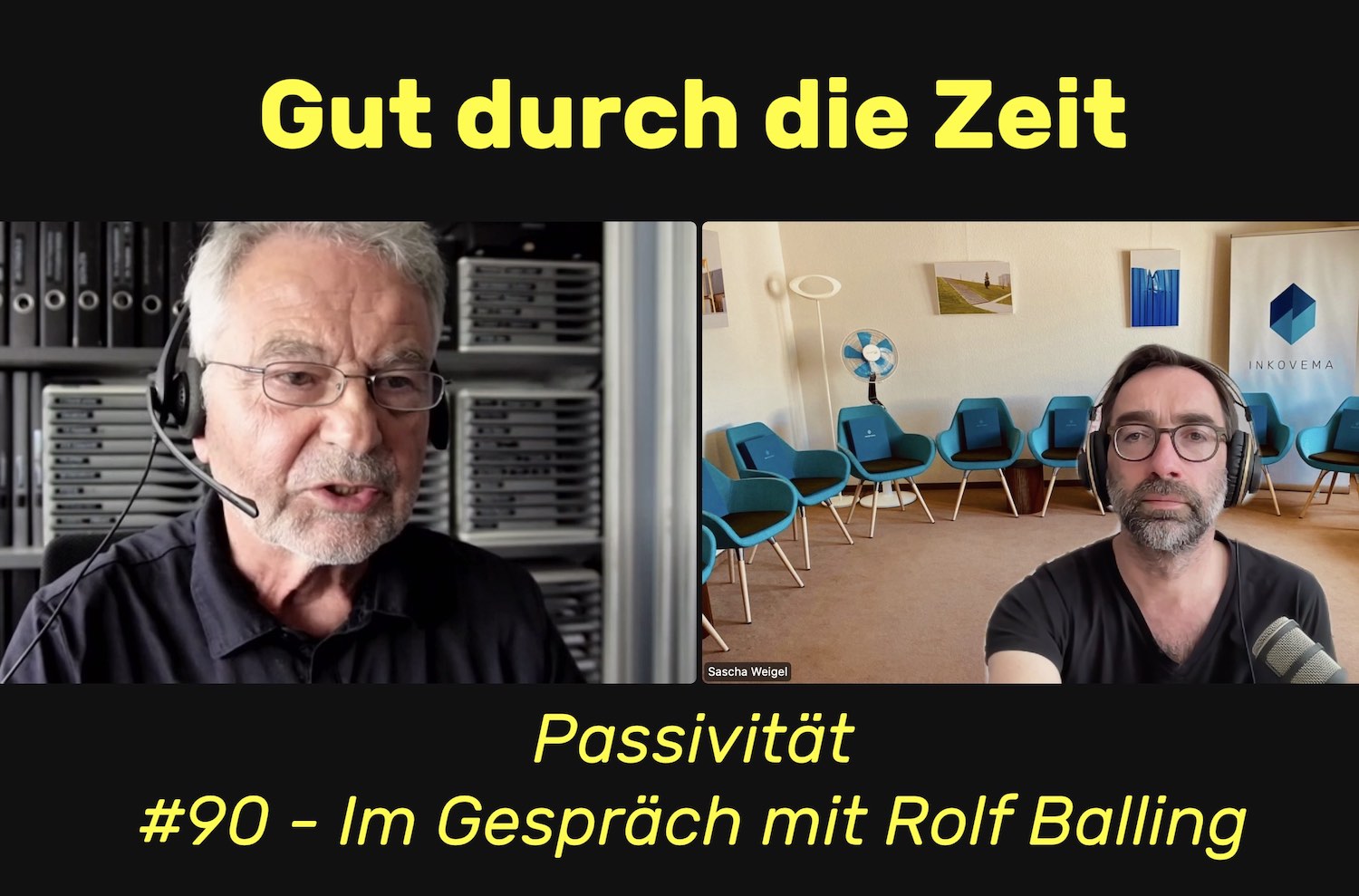INKOVEMA Podcast „Well through time“
#90 – Passivity
How transactional analysis explains that people, although hard-working, do not begin to solve their problems. In conversation with Rolf Balling
Well through time. The podcast about mediation, conflict coaching and organisational consulting.
Rolf Balling, Diplom-Kaufmann (University of Cologne) with a specialisation in social psychology, 7 years in management functions (marketing/controlling) at Alcatel-SEL AG, thereafter 10 years as head of the management training and organisational development department, Training in TA up to teaching transaction analysts in the field of organisation (12 years on the job), training in Group dynamics (2 years extra-occupational), training in Systemic counselling (7 years part-time), From 1990 to 2002 Structure of PROFESSIO GmbHAcademy in the field of human resources, as a teaching trainer and managing partner.
Contents:
In transactional analysis, passivity means that nothing problem-solving happens, even if a lot happens in the end. Transactional analysis therefore calls thinking passive when information that would be relevant is unconsciously not taken note of and processed in a problem-solving manner. It names Four stages of passive thinking.
- The Hide the problem. (="I have no conflict with you. That's your problem.")
- The Devaluation of the problem. (="That may be true, but it's not as bad as you claim. Anyone could come!")
- The Insolubility of the problem is accepted. (="That's bad, but it can't be changed.")
- The Own ability to find solutions is devalued. (="That's bad, but I'm not in a position to solve the problem.)
Passive behaviour can be seen in four alternatives:
- Doing nothing
- Agitation
- Overfitting
- Violence (against themselves or others)
Literature:
- Balling, R./ Hagehülsmann, U. and Seidenfus, Chr.: Learning from the pandemic - Helpful experiences, Weinheim Basel 2022.





Leave A Comment